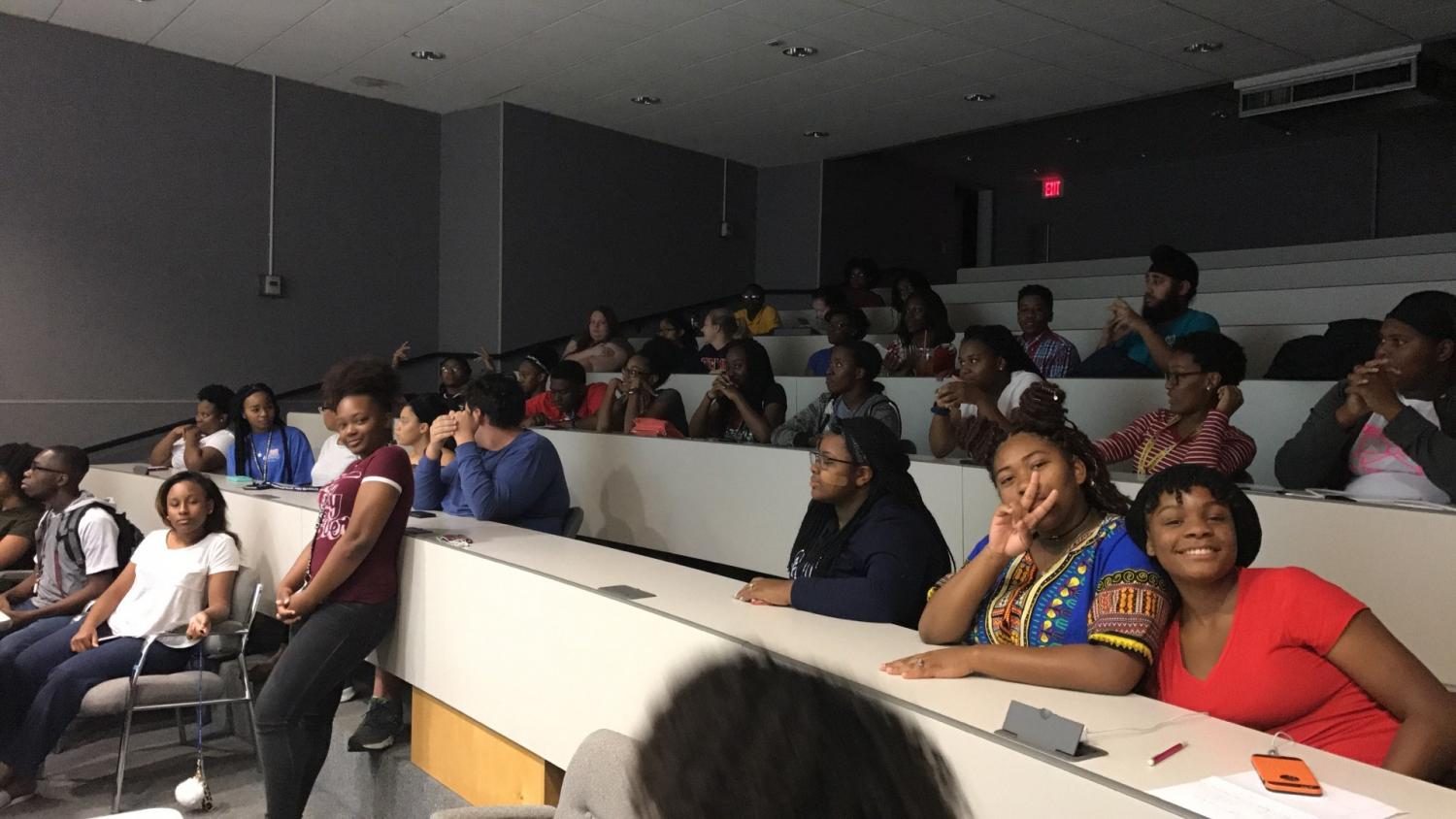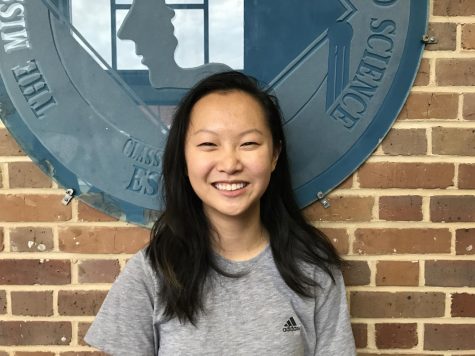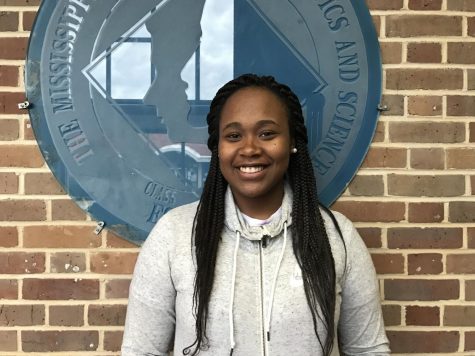Black Student Alliance Embraces Its First Year at MSMS
Students are enjoying themselves and receiving valuable information before playing a game of Kahoot featuring African American history.
September 11, 2017
The Black Student Alliance filled Hooper Auditorium with an aura of contagious energy and reflective discussions during its first meeting of the school year. Despite the fact that this is BSA’s first year as a club at MSMS, it is looking forward to a year with discussions, events, and activities, all centered around its goal towards creating an inclusive African-American community at the school and celebrating diversity as a whole.
At the start of the meeting, Amber Jackson, president of BSA, stood to address the crowd before her to express the purpose of the club and her enthusiasm for it.
“The purpose of BSA is to promote and encourage cultural awareness and diversity. I’m surprised to see it not happening because there are so many of us,” says Jackson.
In terms of the active roles it will take at MSMS, BSA is planning to hold discussion boards and expert panel discussions to help everyone academically and encourage African-Americans to pursue higher academics in the community. This includes meeting twice a month to discuss chosen topics and controversial issues in the African-American community. Jackson, however, is careful to emphasize that BSA is not only for African-Americans and instead encourages the celebration of diversity for all cultures. “It’s not black people against other races,” she asserts.
Junior Morgan Emokpae shares this vision for the future of BSA.
“I hope it becomes a club for everybody, not just for racial units but for the whole community at MSMS. This is a way for students to get together but also a way for students to give back to the community,” Emokpae explains.
Through BSA, many students hope to gain connections with other African-American students and discuss topics that affect their own livelihoods. Dr. Ty Crook, BSA sponsor, says, “With regards to topics, the executive board brainstormed a lot of topics in the country and at MSMS.”
Crook emphasizes the fact that these discussion topics could affect people on a day to day basis. “Some of it is just part of living…how do we handle this at MSMS, in the community, in Mississippi?” Crook urges BSA members to question and discuss during meetings.
And however limited time was during the first meeting, members had no problem discussing these topics. Students described how their race affected how people reacted to them in certain situations that would be viewed as offensive. This included “touching hair” and “using the N-word casually.” Throughout the discussion, each statement was followed by murmurs of agreement while students offered words from their own perspectives, balanced with highlights of humor.
“I’m excited to learn more about my culture,” Emokpae expresses, “but I’m also excited to teach other people about it as well.”











Desmond Walker • Sep 13, 2017 at 9:29 am
I love this! If you need anything from alumni, let me know!